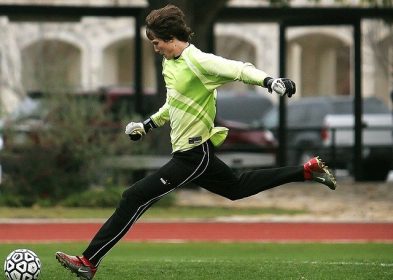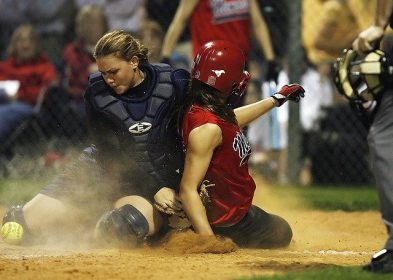Last Updated on October 12, 2025 by Michelle Ball
CIF, the California Interscholastic Federation, controls whether a student can participate in high school sports. Problems occur when a student transfers schools, but stays in the same home. This is when a varsity sport Sit Out Period (aka SOP) will likely apply.
What Is the CIF Sit Out Period
A CIF sit out period is generally a time that a student may not participate in a varsity sport after they transfer for the first time in high school (without moving or a hardship). A sit out period also applies if the student is on their second factual transfer, but the first transfer was based on a full family move or involved an approved hardship.

The CIF bylaw which applies to sit out periods is 207(B)(5)b(ix) which states:
“The Sit Out Period will be 50% of the total number days in that particular season of sport. The number of days in a season is determined by each Section in accordance with their first allowable competition date through the final regular season competition date. If total number of days in a season is an odd number, then the Sit Out Period would be 50% plus one additional day.”
What Does the Sit Out Period Mean?
If a student is subject to the SOP they cannot participate in a varsity sport which they played within the last year at their former school. This is regardless of whether they played at varsity or sub-varsity levels at the former school.
The student will sit out roughly half the varsity season.
So, if a season runs 120 days, the student cannot participate for 60 days. If the season is 121 days, the student will sit out of the sport for 61 days.
Who Does the CIF Sit Out Period Apply To?
The CIF sit out period generally applies to any student who transfers schools (excluding full family moves and hardship transfers) who wants to participates in varsity sports. The student needs to meet all other CIF rules (e.g. they are not transferring based on discipline, to follow a coach, and there is no pre-enrollment contact etc.). The SOP applies to sports in which the student participated at the prior school in the last year at any level.
So, if a student entered ninth grade, played junior varsity (JV) baseball at the first school, then switched schools (without moving or hardship), they should get a sit out period for varsity baseball at the new school.
If the student has not participated in the sport at their prior school, there should be no sit out period.

What if a Student Switches Schools Midyear?
If a student played a sport at their former school, then transferred midyear without a full family move or hardship, they cannot play that same sport at the new school that school year.
Can a Student Play Any Sport Immediately on Transfer?
Students who transfer may play any sports which they did not play at their prior school in the last year (so long as they meet all other CIF requirements, and there are quite a few).
Usually they can also play junior varsity level right away, unless they played that sport that school year at their former school. In other words, CIF does not let a student play basketball at School A then transfer and play basketball at School B during the same school year.
Parents Beware When Transferring Students
CIF is the bane of many parents lives, and will usually strictly apply rules.
And, there is no right to appeal imposition of a sit out period. Parents should thus beware when transferring sports-playing students.
Student attorney Michelle Ball, assists with transfers, sports issues, preparation and submission of CIF documents, and other student sports problems. As a student lawyer in Sacramento, Michelle can assist across California: in Roseville, Los Angeles, San Francisco, Fresno, Auburn, Stockton, Marysville, Chico, Suisun City and many other towns.

